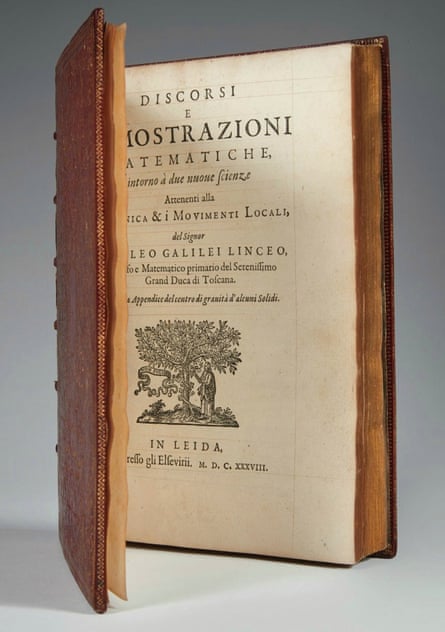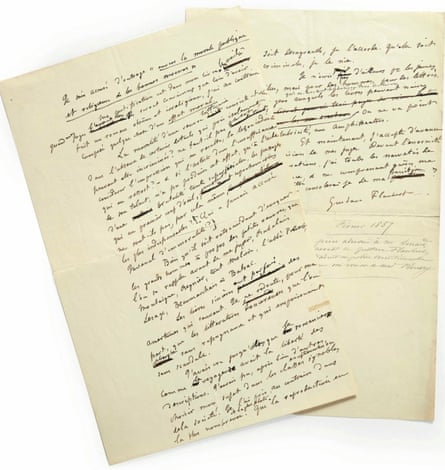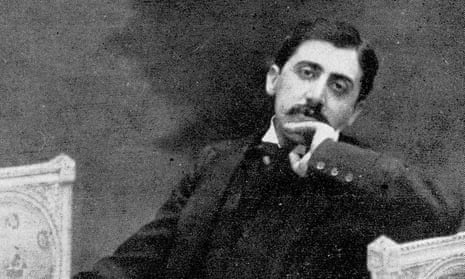A treasure trove of letters and diaries revealing the secrets of some of France’s greatest literary figures is about to go on sale in Paris. Correspondence and journals by Gustave Flaubert, Victor Hugo and Marcel Proust are among 230 lots to be sold alongside a rare first edition of Galileo’s Discorsi on 26 April.
Amassed by Geneva-based Jean Bonna, who has been described as the greatest collector of French literature in the world, the collection is a fraction of material acquired over the past 50 years. Bonna said he was streamlining his collection to concentrate on French literature. Admitting he felt “a little bit sad” to sell the Galileo, which is expected to make in excess of €700,000 (£585,000), he added: “It is a wonderful book, and the best copy I have ever seen, but it does not belong in my collection because it is a scientific book and not French literature.”

Though Discorsi is expected to earn the highest bids, other items will be of interest to scholars and enthusiasts of French literature. Most attention-grabbing is a letter from Flaubert defending his novel Madame Bovary against accusations of obscenity, which was sent prior to his and his publisher’s trial for offending public manners in 1857. Making fierce note of many classic authors who might have caused similar offence, Flaubert writes: “I did not write for young girls, but for men, for literature.” He was banned from publishing the defence.
Alongside a private diary of Les Miserables’ author Victor Hugo, the letter was probably the most important item in the lot, said Bonna, whose passion for collecting began at the age of nine with an 1820 edition of a work by Renaissance scholar and satirist Rabelais, paid for with three weeks’ pocket money. Now 79, Bonna’s collections have since been displayed at some of the world’s greatest galleries.
Table-spinning seances and conversations with the dearly departed are revealed in another lot as one way Hugo avoided boredom during his exile in Guernsey. The spiritualist sessions recorded by the writer were one reason the diary was suppressed after his death by his heirs, who were fearful it would tarnish his reputation. “It is extraordinarily interesting and rare, but not literary,” said Bonna. “It was probably rather boring in Guernsey at the time – it still is, actually – and he turned to spiritualism to distract himself. The diary shows he was quite impressed by all the table turning,” he added.

Not everything in the collection has high literary merit – letters between Flaubert and his lover Louise Colet illustrate the relationship but shed no light on the writing of Madame Bovary, regarded by some as the greatest novel ever written. A book printed by an eight-year-old King Louis XV and bound for the Marquise de Pompadour, while exquisite in appearance, sheds no light on their future relationship as king and concubine.
The most amusing letter in the collection, Bonna said, was from Proust to the son of his landlord. Though the author of À la Recherche du Temps Perdu may be best known for untangling the past after tea and madeleines, the letter reveals a more down-to-earth individual. In the letter, Proust complains about being able to hear his neighbours’ loud sex. The noise was not the problem, the letter reveals: “Beyond the partition, the neighbours make love every two days with a frenzy of which I am jealous.”
The collection of 100 manuscripts is expected to raise in excess of €3m. Asked what he would buy with the money, Bonna admitted that he had his eye on a number of manuscripts. Top of his list was a rare first edition of Louise Labé’s poems from 1555, which escaped him when it came onto the market recently. “I was the underbidder,” he said. “It might come back though. I may get to own it.”
The sale will be held by Pierre Bergé and Associés, in association with Sotheby’s, on 26 April at the Hôtel Drouot in Paris.

Comments (…)
Sign in or create your Guardian account to join the discussion